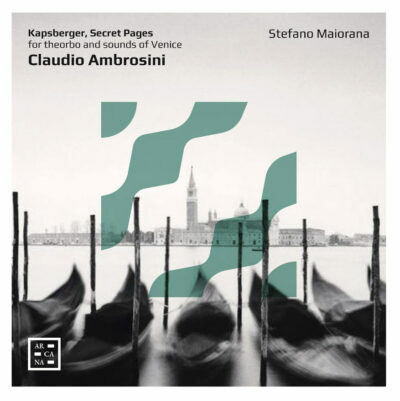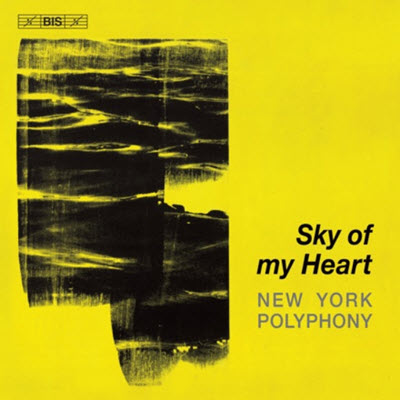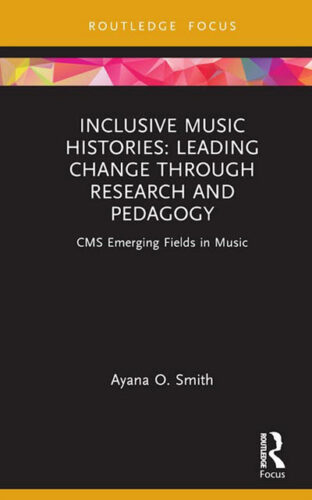by Karen M. Cook
Published July 30, 2023
Claudio Ambrosini, Kapsberger: Secret Pages for theorbo and sounds of Venice Stefano Maiorana, theorbo. Arcana A541
Giovanni Girolamo Kapsberger (c.1580–1641) was born and raised in Venice. His father’s status as a nobleman and military official opened doors for his musical son, and the younger Kapsberger relocated to Rome in his mid-twenties, hobnobbing with some of the city’s most powerful families. As a virtuoso performer of lute, theorbo, and guitar, and as a burgeoning composer of the highest caliber, he quickly gained support for his musical talents. Over his career, he published numerous volumes of vocal works reflecting his association with the papacy and the Sistine Chapel, but also several books of works for guitar, lute, and especially theorbo, which he helped to cultivate as a solo instrument.

Some centuries later, composer Claudio Ambrosini was born in 1948, also in Venice, where he studied music history and early instruments. A scholar-composer-performer, he is the first non-French composer to win the Prix de Rome.
On his latest album, Venetian theorbist Stefano Maiorana imagines what might have happened if Ambrosini, in his study of early music, had stumbled across an imagined lost book of music by Kapsberger, never published because of its advanced nature — the Secret Pages of the album’s title.
It’s an exciting prospect that comes vividly to life here through Maiorana’s exploration of unrecorded (and for Ambrosini, even unpublished) works for theorbo. Maiorana pairs Kapsberger works from Ambrosini’s manuscripts with modern, daring takes on past idioms. Interspersed throughout the musical works are bits of Venetian soundscape: seagulls, waves gently lapping, the sounds of gondolas, church bells ringing.
The overall effect — or, Baroque-ishly, affect — of the album is aural immersion into the Venetian atmosphere. It’s an album to be listened to from start to finish without pause, to grasp the nuances of this story without words. While of course there are stylistic differences between the two composers, distanced as they are in time, there is yet a continuity borne of Maiorana’s sensitive, expressive playing that shows off the improvisatory nature and technical demands of both composers. Listen, for example, to Kapsberger’s warm, mellow Toccata I followed by Ambrosini’s own Toccata, a more pointed, percussive take on the genre. Or, contrast the sweetly charming “Aria Venezia” by Kapsberger with Ambrosini’s metallic, roiling Sarabande. Throughout, Maiorana creates a host of colors and timbres, imbuing the works with an admirable richness only enhanced by the intimacy of the recording acoustic in Venice’s Teatrino di Palazzo Grazzi.
Not all early-music fans will appreciate how much of the album is dedicated to modern pieces; many might well prefer yet another album dedicated solely to Kapsberger, or other composers of his day. Of course, one might choose to listen just to the Kapsberger works on this recording. Given the sheer number of them that are world premiere recordings, the album is worth having for that alone. But it’s also a remarkable exercise in soundscapes, and in imagination. The conversation Maiorana creates across the centuries is well worth repeated listens.
Karen M. Cook is Associate Professor of Music History at the University of Hartford. She specializes in late medieval music theory and notation, focusing on developments in rhythmic duration. She also maintains a primary interest in musical medievalism in contemporary media, particularly in video games.




